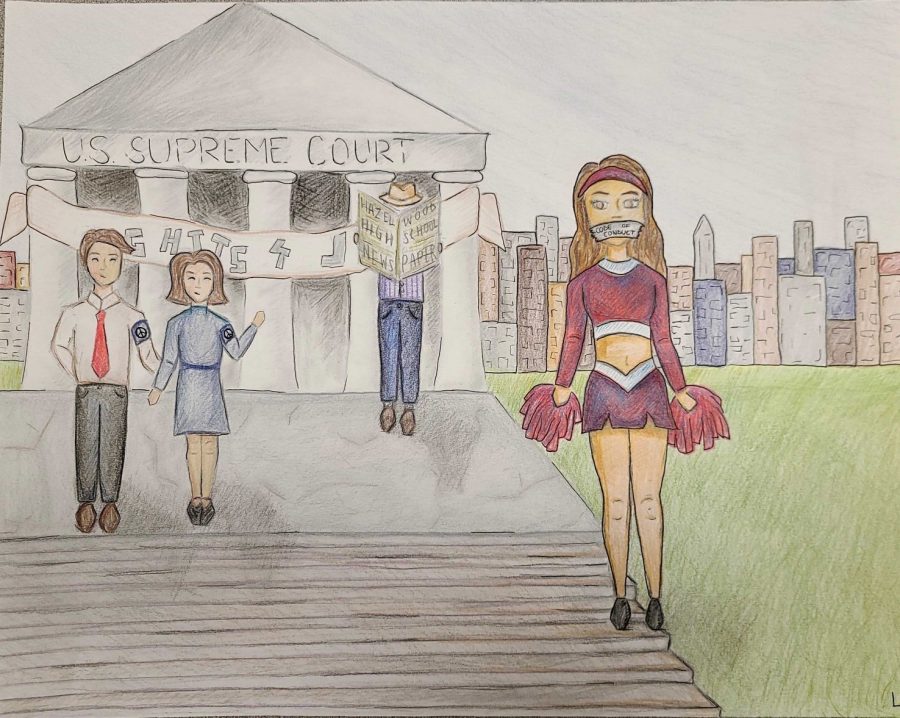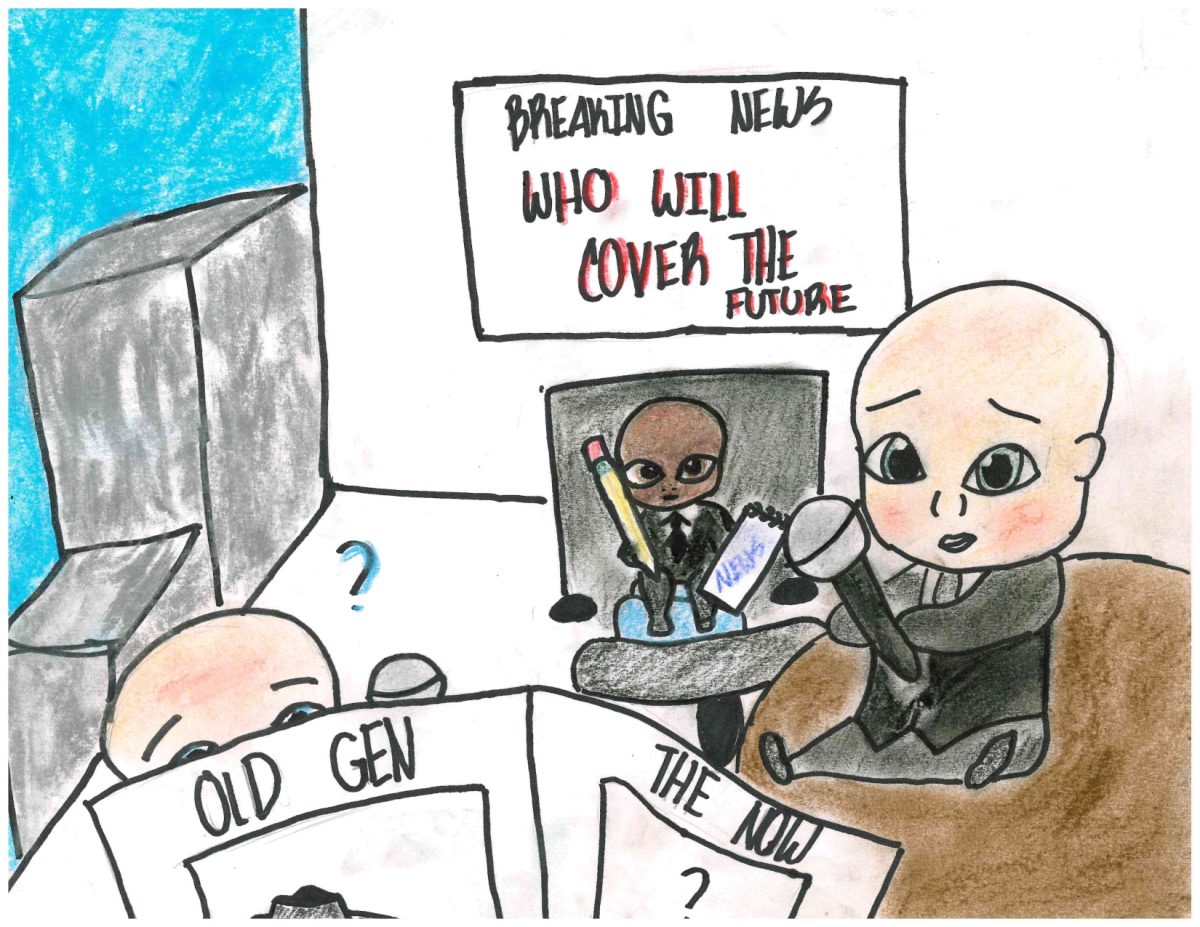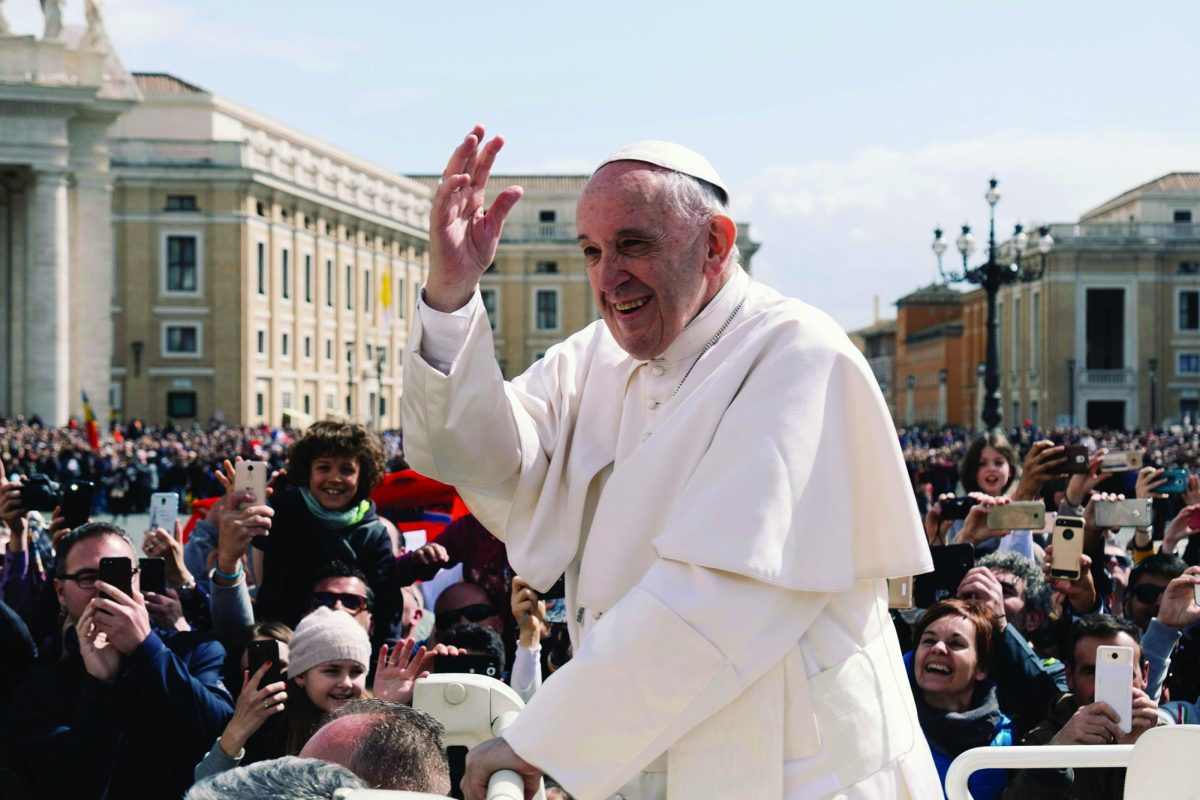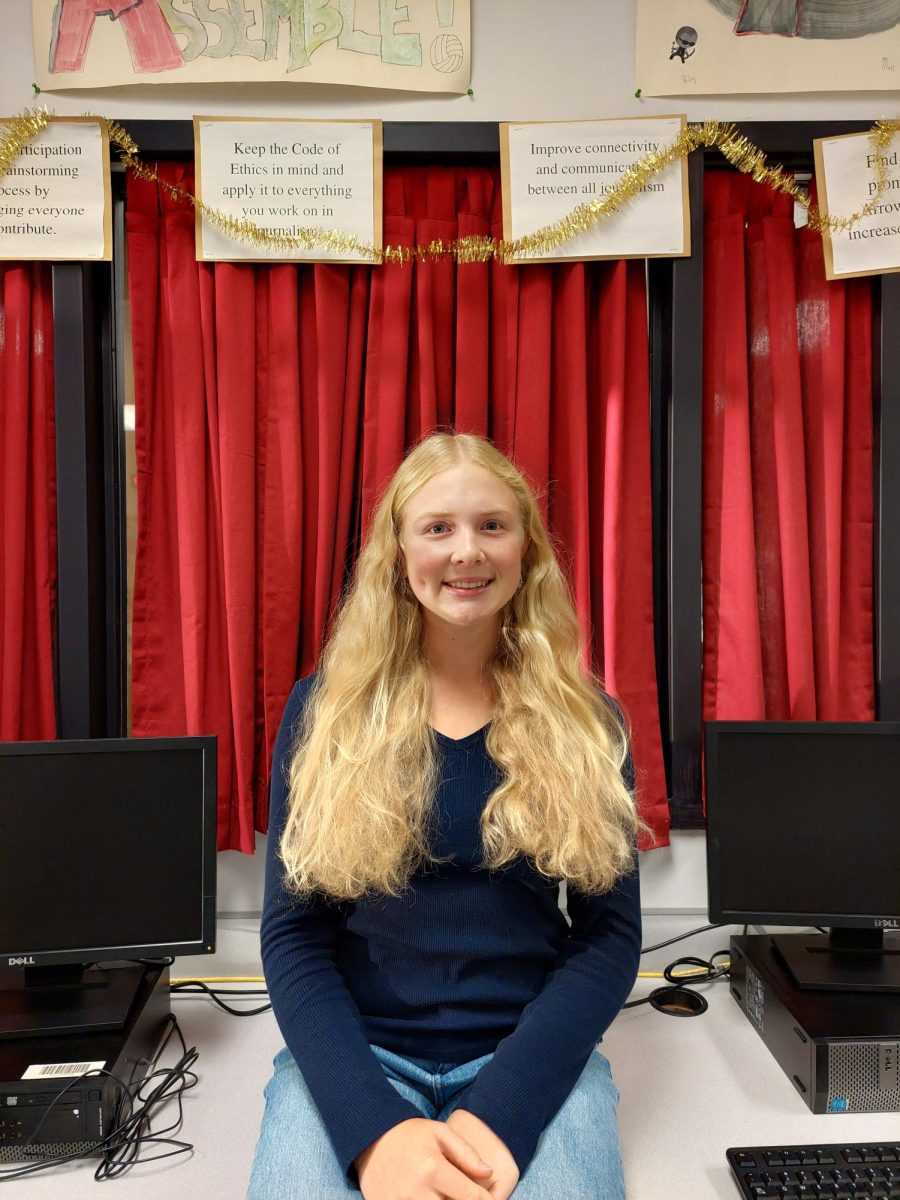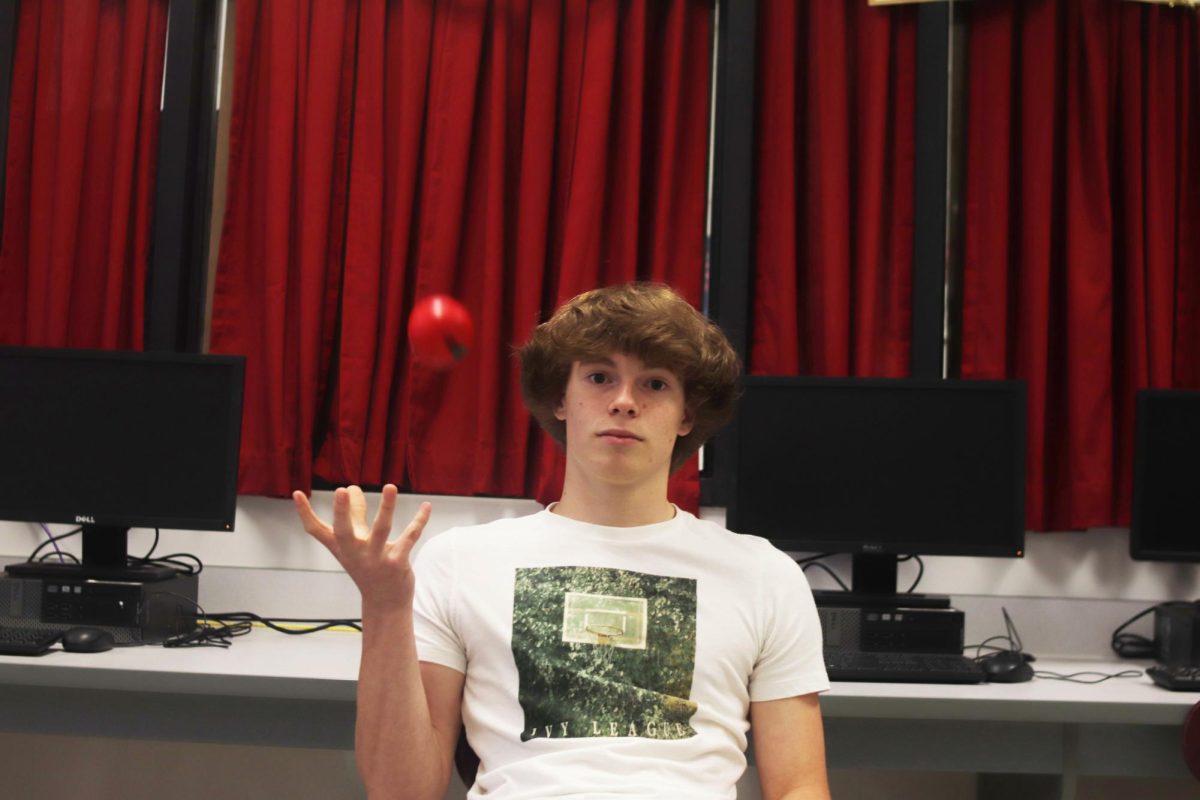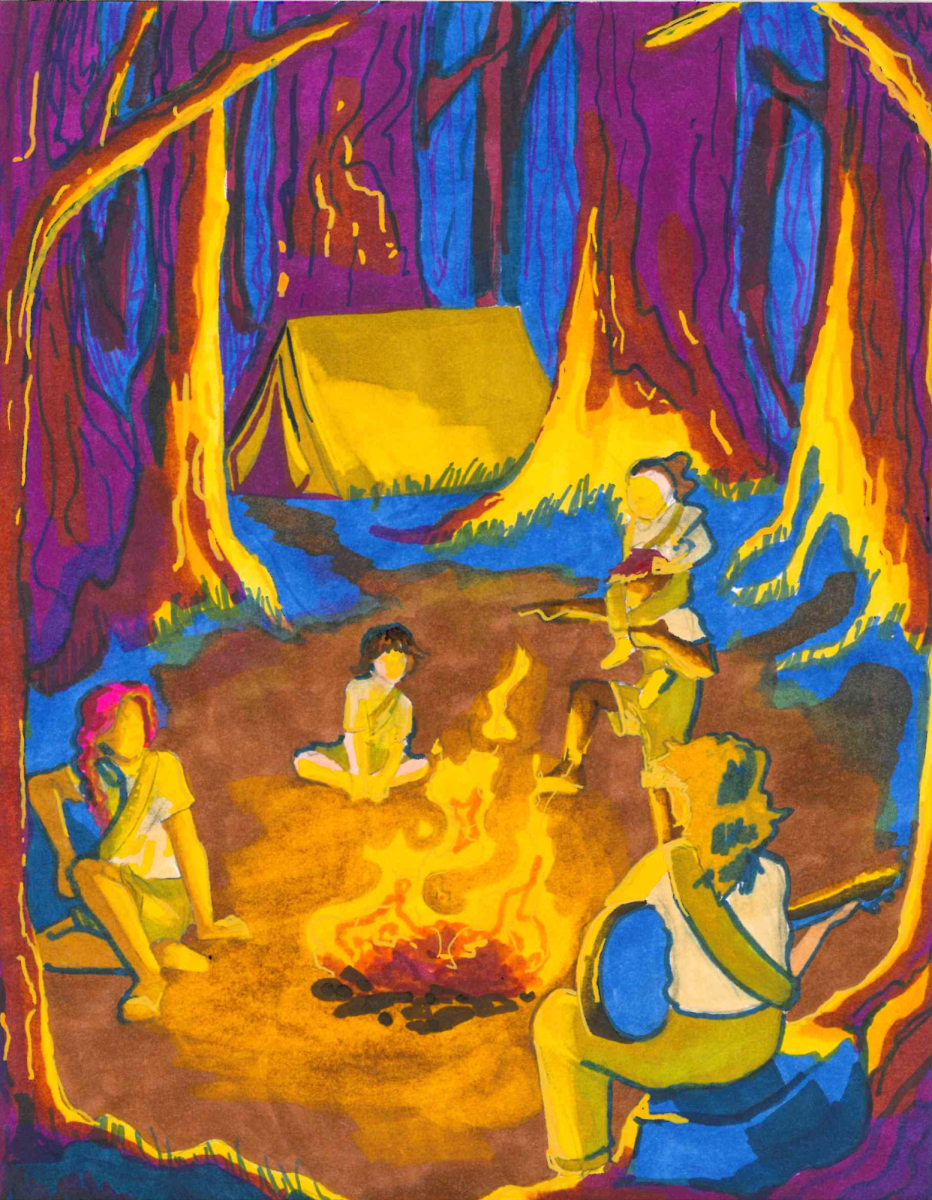With lines being blurred because of things like social media and increasingly intense extracurriculars, it has become hard to define what is in school, what is out of school, and how to address either situation.
The Roberts Court will be addressing a question provoked by these issues in June 2021. Mahanoy Area School District v. B.L. involved a underage cheerleader who was suspended from her cheer squad for using vulgar language directed in the direction of the school in a post on Snapchat. B.L. had signed a code of conduct contract agreeing to hold herself with a high standard of respect and the school felt her post came into violation of that code. She was suspended for a year from the cheerleading squad, provoking a lawsuit from her parents in her name.
The judicial branch addressed a similar question in 1968 during the trial Tinker v. Des Moines Independent Community School District. The case held that students don’t relinquish their civil liberties on a school campus. While student’s liberties can be limited, they cannot be completely taken away.
B.L. is making the case that the school cannot punish her for her actions given that they firstly, cannot require her to relinquish freedom of speech to play a sport; secondly, her post was taken out of school and did not mention the school by name.
The school district is making the argument that they are not suspending her from school and that since she willingly signed the code of conduct, they cannot be liable for suspending her for presenting herself in a way they did not agree with.
No matter the outcome, this will be a landmark first amendment case for the nation. The question of how fast-paced social media is protected by first amendment in situations where lines get blurry is one that has been needing an answer from the Supreme Court for a while now.
The first question B.L.’s case poses to the Supreme Court if her speech is protected under the first amendment.
Speech that isn’t protected by the first amendment is obscenity, defamation, fighting words, and government speech.
Obscenity has long been a vague category of speech that has been hard to define. However, while B. L.’s post used explicit language, it was not obscene, as explicit language is not defined as obscene.
In the United States, defamation is much harder to prove than simply declaring something slanderous. The defamation must be intentionally false and malicious to be a successful case. B. L. was not presenting any false information as factual, and she did not use the school, coach, or program’s name. The statement wasn’t defamatory towards anything beyond the sport and school in general.
Furthermore, her words can not be classified as fighting words because she did not incite violence or inflict injury on someone specific.
Her speech is also not considered government speech because B.L. is not a government employee or speaking through a government platform.
However, because B. L. is a student and her words addressed school, it could be suggested that the school has the right to limit her speech. Student speech can be limited by the school, as decided in 2007’s Morse v. Frederick case.
This raises the question, can a school limit speech made out of school if they are mentioned?
B. L signed a code of conduct promising she would hold herself in a way that awas respectful towards her coaches and teammates, as well as not tarnish the image of Mahanoy Area School District.
This provokes the second question of the case. Considering B.L.’s speech is protected by the first amendment, as a minor is she able to waive that right and is the school able to create conditional participation on the basis of waiving that right?
The Supreme Court has upheld that an individual can waive their first amendment right to speech, but has not specified what that exactly means.
The idea that an extracurricular activity can suspend you for out of school activity is legally valid. For example, athletes can be suspended for underage drinking. The question of whether B. L.’s vulgar speech is protected and has yet to be defined.
It is hard to say who will win this suit, but I believe that B. L. will win.
B. L. has the side of the Constitution on her side and the Supreme Court has a history of upholding freedom of speech, especially if non disruptive or off school property.
B. L. has the right to her speech just like any other citizen, whether she is taking part in public extracurriculars or not. Her public, government funded school should not be able to restrict her right to participate in associated programs over actions that are protected by the constitution.
Whether B. L. wins or loses, her case will undoubtedly become a landmark case for freedom of speech related to minors.
B. L.’s suit is covering legal territory that has not yet been spoken on by the Supreme Court.
The implications of the case on the speech of students on social media outside of school will be felt in all public schools across America, likely changing the usage of code of conduct contracts in athletics and clubs for the foreseeable future.
Minor sues school district over abridgment of freedom of speech
By suing Mahanoy School District, minor B. L. is challenging public schools’ rights to regulate speech beyond school grounds and hours. The court cases have been appealed to the Supreme Court and will be addressed this coming season, changing the way schools use codes of conduct and regulate athlete behavior.
0
More to Discover
About the Contributor

Julia Vizza, Co-Editor-in-Chief

